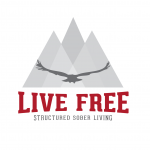Live Free Structured Sober Living
Partial Hospitalization Programs
Live Free Structured Sober Living offers partial hospitalization programs based on a client-focused approach that considers the needs of each person who enters our care.
Our full continuum of recovery care options is carefully designed to provide all clients with a recovery process that will help them succeed in life.
What Is a Partial Hospitalization Program?
Partial hospitalization, which is often referred to as day treatment, is a middle ground between inpatient and outpatient treatment. It offers an intensive and structured rehab program while still allowing patients to live at home. This allows patients to benefit from the services of inpatient care, without having to live at the treatment facility. Partial hospitalization programs are an excellent option for those who could benefit from treatment that is more concentrated than typical outpatient care, but who do not require 24-hour medical support and monitoring.
LEARNING
How Do Partial Hospitalization Programs Work?
Partial hospitalization programs are intensive outpatient treatment programs that involve various therapeutic services for several hours a day, three to five days per week. Patients have access to all of the same services included with inpatient programs but are not required to stay overnight. An initial assessment with a substance abuse counselor will help determine if a partial hospitalization program is best for you and, if so, how long the program will last.
Some patients may also transition from an inpatient rehab program to a partial hospitalization program as they progress and work toward recovery from long-term addiction.
What Is Included in a Partial Hospitalization Program?
During the time spent in a partial hospitalization program, patients may engage in individual or group therapy, receive medication management, and participate in substance abuse education sessions. The following are some examples of therapeutic services typically included in a partial hospitalization program.
Dual Diagnosis
Many people who struggle with substance abuse also have a co-existing mental health condition, such as depression or anxiety. Receiving therapy and other forms of treatment for the mental health condition is essential to achieving a successful outcome in a drug or alcohol rehab program. Partial hospitalization programs provide an excellent opportunity for patients with a dual diagnosis to receive an intensive and integrated approach to their unique challenges.
Medication Management
Prescription medication can be helpful to many people for whom mental health or behavioral health issues play a role in their addiction. As part of a partial hospitalization program, patients will meet with a psychiatrist or medical staff to monitor and manage these medications.
Individual Counseling
One-on-one counseling with a program specialist is an essential part of any drug or alcohol rehab program. Individual counseling may include modalities such as cognitive behavioral therapy, which helps patients identify and modify negative or flawed beliefs that may underlie their substance abuse issues. If deemed beneficial, spouses or other family members may also be asked to participate in individual counseling sessions.
Group Counseling
Group therapy can be a highly beneficial component of a partial hospitalization program. Many people struggling with drug or alcohol abuse experience feelings of inadequacy and isolation. Knowing that you are not alone in your struggles can be extremely beneficial as you work toward recovery. Group counseling can also help patients improve their interpersonal communication and socialization skills.
LEARNING
What Happens After a Partial Hospitalization Program?
Upon successful completion of a partial hospitalization program, patients may transition into a less intensive outpatient program, which will continue to provide them with support services while allowing them to resume their normal daily schedule. Continued outpatient programs may include individual and group counseling, relapse prevention services, and physical activities that have been shown to aid in addiction recovery, such as yoga.

